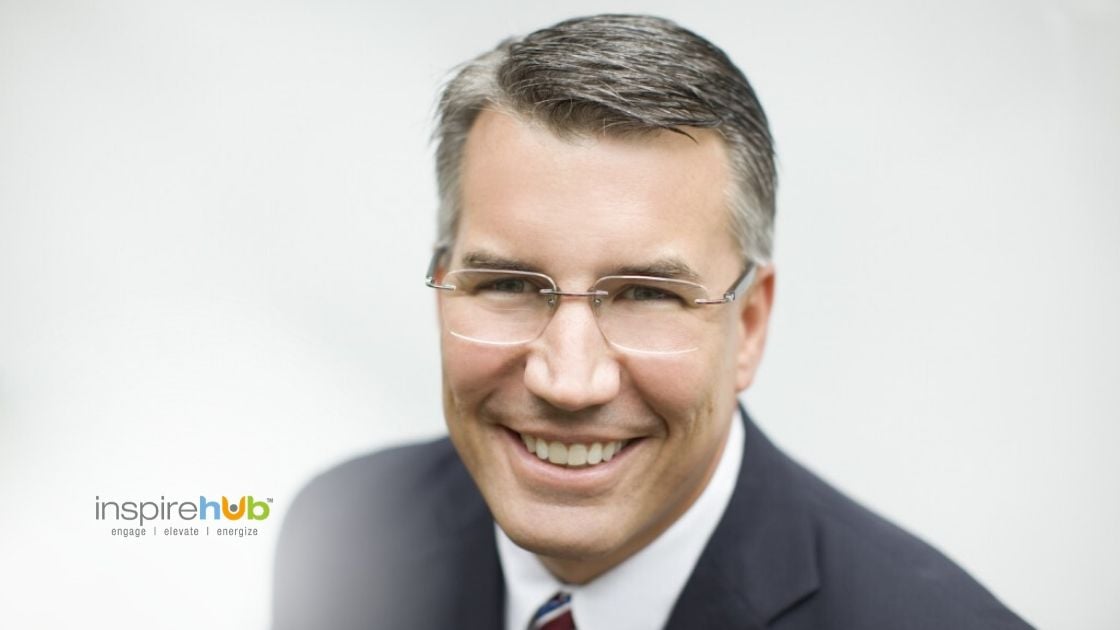
There was a product manager at a large consumer products company who was forced to work with a haughty executive who was wont to wear his degrees on his sleeve. With his JD and MBA along with two undergraduate degrees, he was quick to say, “I have a degree in...” and he often irritated the sense out of his co-workers. One day in reviewing a problem, he said to the product manager, “You know, I have a degree in this area, and....” The product manager interrupted and said, “Even thermometers have degrees, and you know where people stick thermometers.” She was able to say it in a way that even the executive laughed. She had a gift with communication as well as a level of humility that this well-degreed executive did not.
There is no virtue in leadership as important to accelerated growth and turnaround as that of humility. Not so much because mistakes must be admitted, but because the source of the solutions will come from without, not within. Your personal education and experience are probably not the key sources of the solutions that will be needed. The strength of the relationships you have and the process for synergizing those relationships, internal and external, to your organization will be the source of many ideas that will be the steps to your growth and turnaround.
A best practice to show and prove your humility is to have confidential blind spot sessions. This is the simple but potentially painful practice of inviting your team, one by one, to meet with you to share your greatest blind spots that most hinder you and your company’s growth. They are to point out your character missteps with specific examples, and, if they wish, discuss how it might have impacted others. When you as a leader can listen to, understand, acknowledge and respond to the weaknesses that your subordinates bring to you in this setting, it will do more to bond your relationships and tap the full potential of your people than many management tactics.
Your people will bring up your character flaws and habits that may seem unrelated to your effectiveness—but they will bring them up for a reason. They will test you with smaller issues to see how you react, and if you take notes, confirm what you’ve heard, and not make excuses for the examples—but acknowledge them and ask for help in keeping you accountable to better character in the future, you will see people transform before your eyes.
Here are a few steps to conduct blind spot sessions effectively:
- Don’t respond or make excuses to the issues your team brings up. Just take copious notes and thank them for each insight. Once you start to justify, you will cause people to clam up.
- Invite people to share any character flaw that they see in you, especially what may be hindering your performance.
- Invite everyone who reports to you directly, and perhaps a few others throughout your organization who have the ability to see you in action both when you are at your best and perhaps worst.
- You may not need more than 15 minutes with most people, but allow for more time if needed.
Usually the sessions are short and will be kept so if you don’t allow yourself to respond.
This one practice alone has saved bankrupt companies. Turning around a company is first about turning around the people, and the first turnaround is you! Growth, both personal and organizational, is guaranteed. It works every time, but it may hurt!
About Mark Faust
Each Tuesday, turnaround consultant Mark Faust will be sharing his expertise on how to turn around your small business. His blogs will be filled with practical insights and basic turnaround strategies designed to guide you through crisis leadership and change management. You'll be able to tap into tips on everything from profitability issues, business continuity plans and pandemic pivots to operational processes, marketing and customers additional value.
As one of the companies he helped grow, we know first hand how inspiring his leadership is and just how well it works! Mark has also agreed to make his best-selling book ‘Growth or Bust’ available, free of charge, to any small business to help them create their own effective turnaround plan. We’ll be sharing that with you soon.
You can learn more about Mark and his company, Echelon Management, by clicking here.
Looking for more small business help?
.png)
The Ultimate Small Business Survival Guide is Here
We've been helping InspireHUB clients not just survive during this time but THRIVE! We collected all of our advice and made it available for FREE as our great big give-back during this difficult time. Included in this FREE Guide:
- Transformation Readiness Assessment
- Practical Marketing Help
- Proven Strategies to Pivot Your Company
At InspireHUB, we’ve been blessed with a network that includes some of the foremost leaders in the world. A few years ago, we had the pleasure of meeting Mark Faust. Mark has over thirty years of experience in helping companies turn around through his company Echelon Management International. The brands he’s helped include John Deere, Apple, Bayer, IBM and P&G. He also helped me personally and professionally with InspireHUB as we morphed to become the company we are today.
His insight and expertise are invaluable, but realistically, the majority of small businesses would never get access to a “Mark” due to the size of their budget. Having someone like Mark literally can be a life-saving exercise for any size business. What impressed me the most about the work Mark and I did together was the bulk of it was not business tactics and strategy; it was about myself as a leader. Understanding what motivated me, where I found my hope, what would INSPIRE me to wake up every day and work on this business.
Here's how Mark helped transform InspireHUB and how he's going to do the same for YOUR small business ...
Leaders have a great deal of weight on their shoulders these days. In a time of great change -- economic, health and our very humanity -- how you communicate is just as important as what you say.
Back in 2018, workplaces replaced neighborhoods and places of worship for our sense of community. We asked ourselves what it meant for companies when professional services firm, EY, revealed that more people get that sense of belonging from their jobs than any other source, outside of their own homes. With the lines between work and home blurring more than ever as pandemic lockdowns morphed the two into the same physical space overnight, the impact of that burden is apparent.
To draw on a truth from our article 3 ways to navigate crisis leadership communications during COVID-19: no amount of practice prepares you for the very human challenges of a pandemic. People are stressed and afraid. They’re suffering losses and dealing with uncertainty. When people are compromised, communicating with empathy and compassion is more important than ever. The most important part of your business continuity plan is the wellness of your people.


